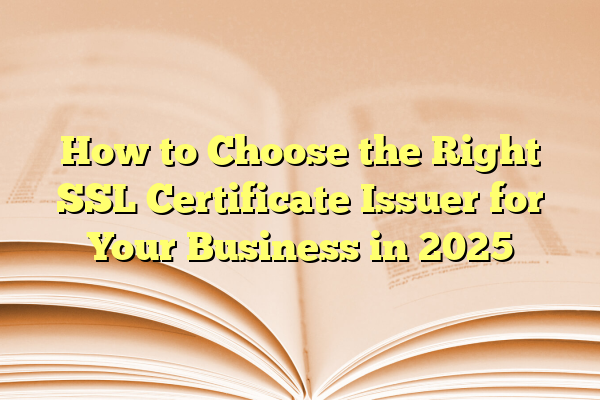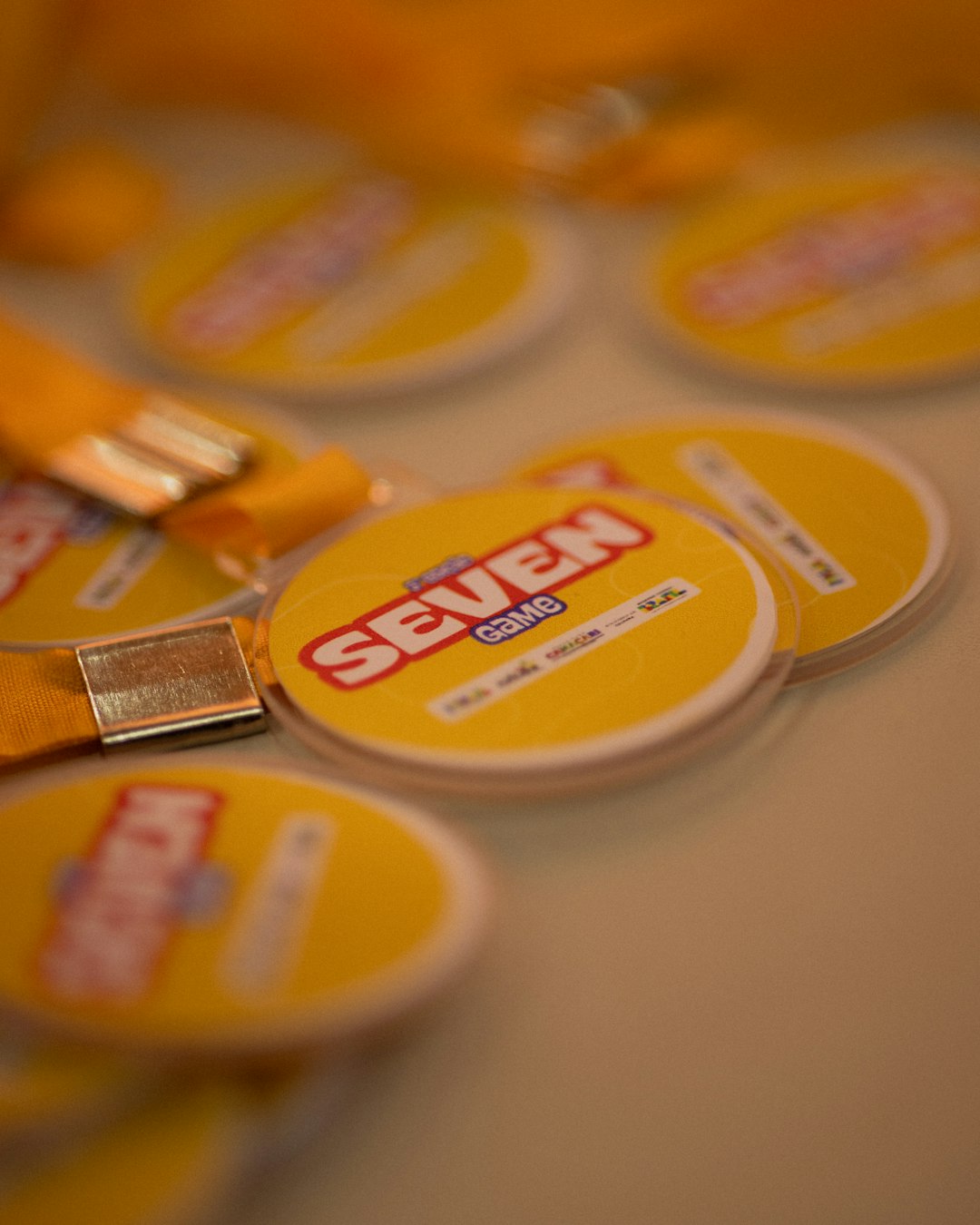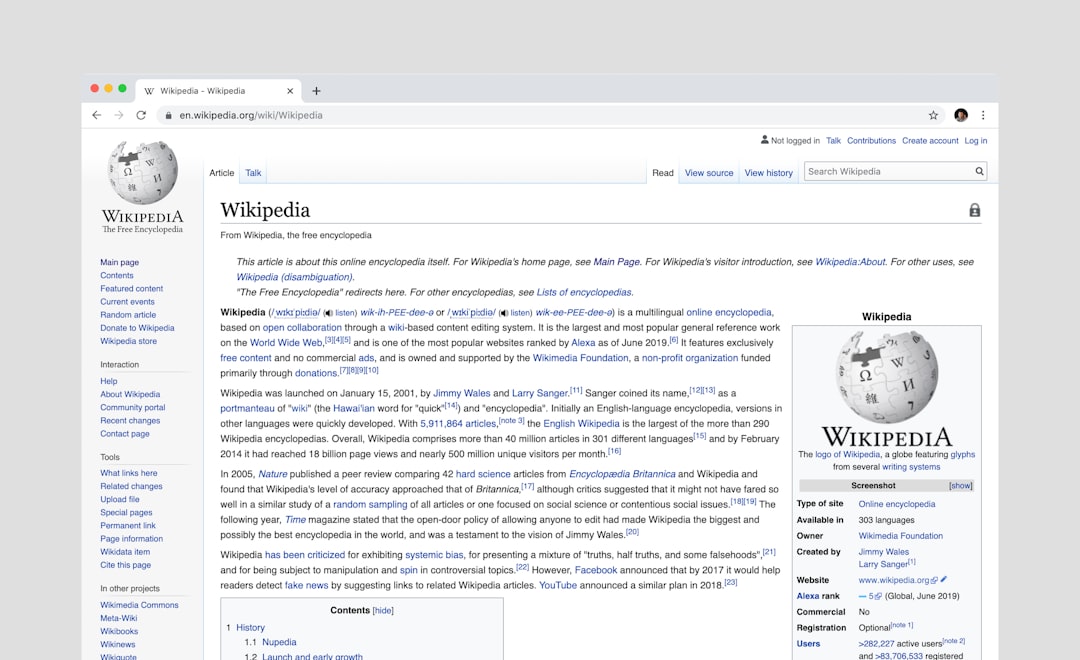
How to Choose the Right SSL Certificate Issuer for Your Business in 2025
When running a business online in 2025, safety is everything. Customers want fast, secure websites. And you? You want their trust. That’s where SSL certificates come in. They protect your site and prove it’s really you running it. But how do you choose the right SSL certificate issuer?
Let’s break this down in a simple, fun way. Think of your website like a fancy online coffee shop. To keep your shop safe, you need a lock on the door. An SSL certificate is that lock. But not just any lock! You want one that actually works and doesn’t come from some dude in a trench coat saying, “Trust me!”
Contents
- 1 What Is an SSL Certificate Anyway?
- 2 Types of SSL Certificates
- 3 Why the Right Issuer Matters
- 4 The Best Issuers for 2025
- 5 How to Choose the Right Issuer
- 6 Red Flags to Avoid
- 7 Fun Fact: Certificates Can Be Wild or Tame
- 8 What About Automation?
- 9 Make It Easy With Hosts
- 10 Wrap Up: Choose Smart, Sleep Better
What Is an SSL Certificate Anyway?
SSL stands for Secure Sockets Layer. It encrypts data between your site and your visitor’s browser. That’s what makes the little padlock icon appear in the address bar. It tells your customers, “Hey, this place is safe. You can share your info here.”
Without SSL, your site might be blocked by browsers. Worse, a warning like “This site is not secure” can scare away visitors faster than a bad latte.
Types of SSL Certificates
Before we pick an issuer, let’s look at the kinds of SSL certificates. These are like sizes of locks for your shop door.
- DV (Domain Validation) – Basic. Fast. Good for blogs and small sites.
- OV (Organization Validation) – Verified company info shown. Great for businesses.
- EV (Extended Validation) – Super trust signals. Shows your company name in the browser. Loved by banks and e-commerce sites.
Now that you know what the locks are, let’s talk about the locksmiths—your SSL certificate issuers.
Why the Right Issuer Matters
Your SSL is only as good as the company that gives it to you. If the certificate authority (CA) has a poor reputation or gets hacked, it could spell trouble for your site. Plus, support, speed, and pricing vary a lot.
You want an issuer that’s:
- Trusted by major browsers
- Reliable with good customer support
- Secure and follows the best practices
- Affordable without cutting security corners
The Best Issuers for 2025
Let’s take a quick tour of the top SSL issuers you’ll likely hear about in 2025.
- Let’s Encrypt – FREE and perfect for startups with basic needs.
- DigiCert – Big name, great support, trusted worldwide.
- GlobalSign – Known for strong authentication and enterprise solutions.
- GoDaddy – A familiar face for domain folks, also sells SSL.
- Comodo (now Sectigo) – Budget-friendly with wide options.
Some focus on price, some on premium features. Let’s go deeper so you can choose what fits best.
How to Choose the Right Issuer
Now for the big question. Which one should you pick? Here’s a fun checklist to help.
1. Know Your Website’s Purpose
If you’re just running a simple blog or portfolio, Let’s Encrypt might be just fine. But if you’re collecting customer info or running payments, go for a higher validation level—and an issuer with more features and support.

2. Ask About Browser Trust
You want a certificate that’s recognized by all major browsers. Some unknown issuers might give you a cert that doesn’t show the padlock—or worse, causes errors. That’s not cool.
Stick with trusted names like DigiCert, GlobalSign, and Sectigo.
3. Look At Support and Help
Can’t install the cert? Need to renew in a panic at 2 a.m. on a Sunday? Yeah, you’ll want helpful support.
Issuers like DigiCert and GoDaddy are known for 24/7 support. Let’s Encrypt, being free, relies mostly on community help.
4. Think About Features
Some issuers offer extra tools like malware scanning, vulnerability reports, or even site seals (fancy trust badges you can add to your site).
If you love extra perks, look at what comes with each plan.
5. Price Matters (Sometimes)
You get what you pay for, most of the time. Free certs like Let’s Encrypt are great, but they expire every 90 days and need to be renewed often (though this can be automated).
Paid ones often come with warranties—which can help in case of breaches. If you’re running a business, it might be worth the investment.
Red Flags to Avoid
Avoid any issuer that:
- Has hidden fees
- Isn’t listed in major browser trust stores
- Has a lack of transparency
- Seems too cheap to be true without clear info
Also, don’t get fooled by resellers that just white-label another provider’s certificate. They might not offer much help when something goes wrong.
Fun Fact: Certificates Can Be Wild or Tame
Okay, not really. But there are wildcard and multi-domain certificates.
- Wildcard SSL – Covers all subdomains (like blog.yourdomain.com).
- Multi-Domain SSL – Covers multiple domain names with one cert.
This is helpful if you’ve got more than one front door to lock on your digital coffee shop.

What About Automation?
It’s 2025. You don’t want to manually renew certificates and mess with code every few months. Look for issuers or providers that let you:
- Auto-renew certificates
- Set reminders for expiration
- Manage multiple certs in one dashboard
Time is money. Save yourself the drama.
Make It Easy With Hosts
Here’s a bonus idea. Many hosting services now include SSL during setup. It’s like getting your lock installed by a pro. If you’re using platforms like Bluehost, SiteGround, or Wix, they might already include Let’s Encrypt or another partner certificate in your hosting plan.
Ask your provider. It could save you time and cash.
Wrap Up: Choose Smart, Sleep Better
Picking your SSL issuer doesn’t have to be rocket science. Just remember:
- Match the cert to your site’s needs
- Stick with a trusted issuer
- Don’t cheap out on security if your customers’ info is involved
- Use automation or managed hosting to stay sane
The right SSL certificate gives you peace of mind and builds customer trust. And in 2025, that’s worth its weight in gold. Or espresso beans. Whichever you value more.
So go out there. Lock it up. Keep it safe. And let your website shine with confidence!
